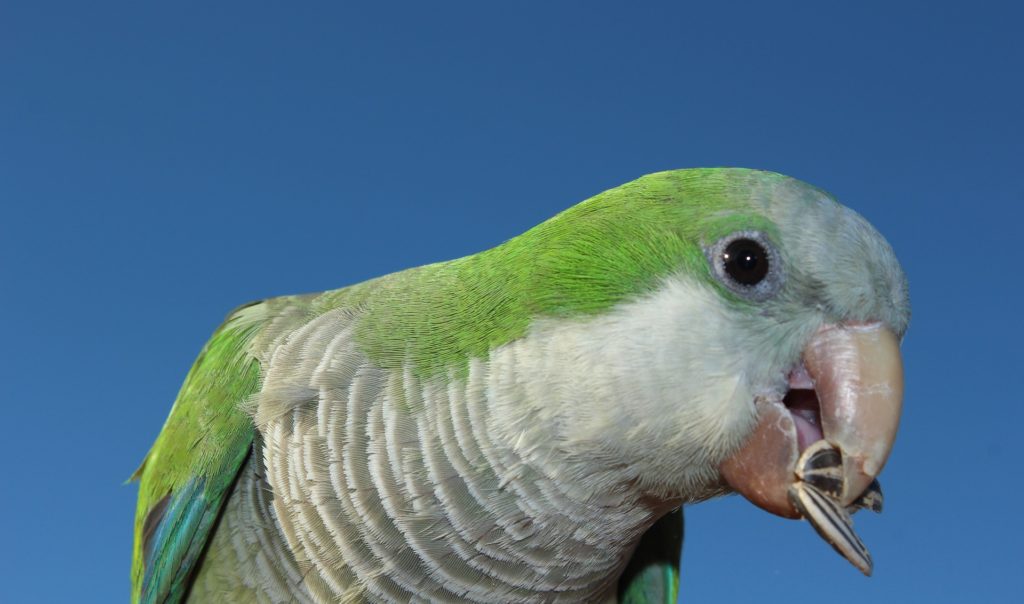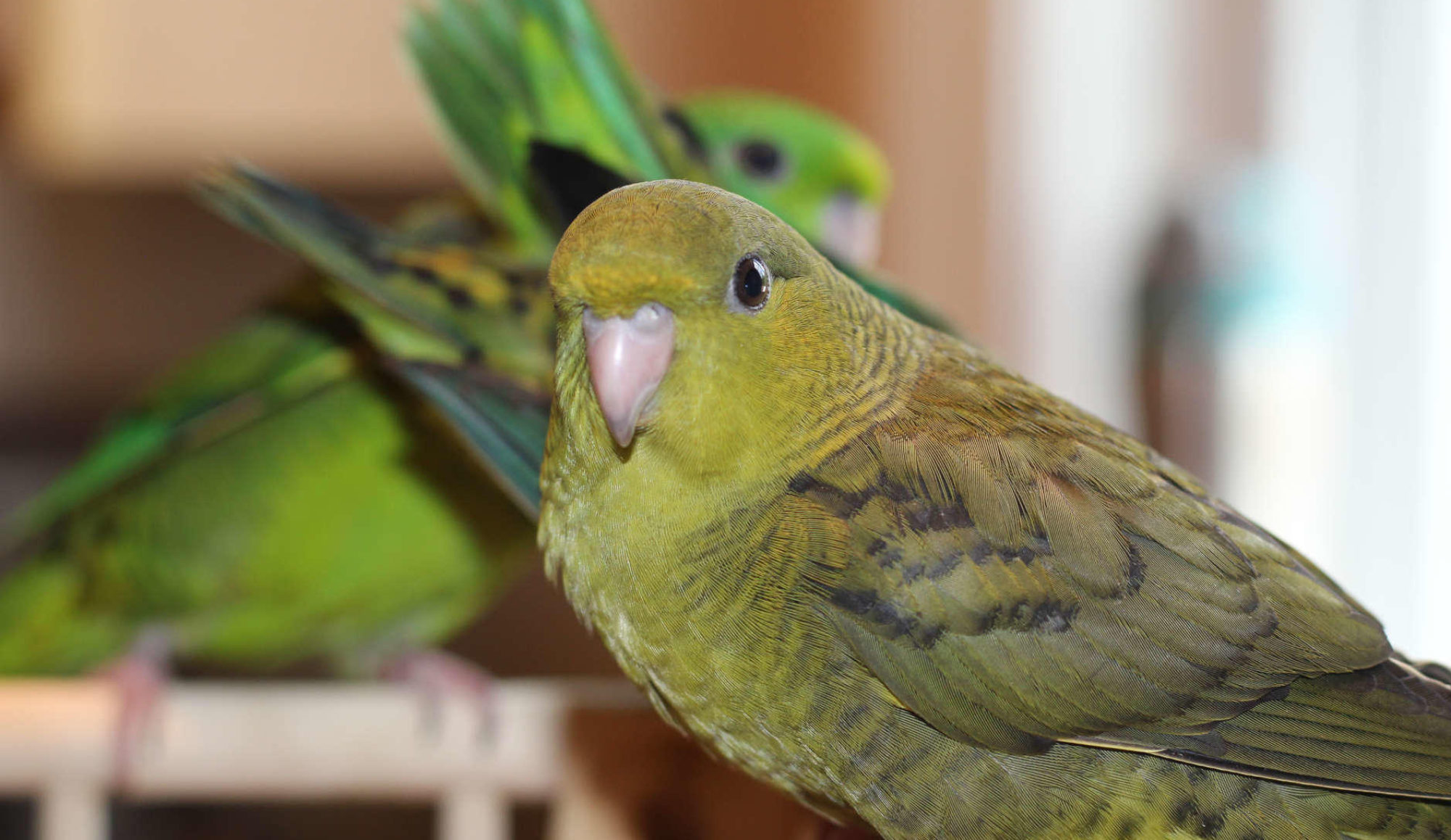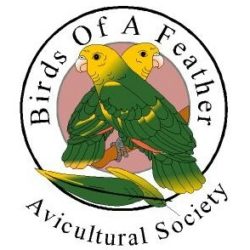Quaker Parakeets’ native habitat is extreme southeastern Brazil, through Uruguay to Central Argentina. They are established in Puerto Rico and the North Eastern United States as far north as Connecticut, Illinois, and New Jersey.
Quaker Parakeets are the only parrot who build communal nests, created entirely from twigs, branches, straw, leaves, and other suitable material. In the wild, colonies of Quakers create a main nest structure in the topmost branches of trees, and each pair “adds on” to that structure, building separate chambers like an apartment building. Each “apartment” has an entry way and an area for laying and incubating eggs. In the wild these birds usually reside in lowland and low rainfall areas, in open forest trees along watercourses, savanna woodland, palm groves, farmlands and orchards.
Groups go out from the nest and band together to feed in open grasslands or cultivated fields. While feeding away from shelter they are wary and difficult to approach; sentinels perch atop nearby trees and at the appearance of danger, screech loudly causing the entire flock to fly off. They feed on seeds, fruits, berries, nuts, leaf buds and blossoms, insects and their larvae. Favorite foods include seed of thistles, grasses and various trees, especially tala and palm nuts. They can get into conflicts with farmers when they raid crops, which is why they are outlawed in some states of the U.S.

The Pet Quaker
As pets, Quakers are active, playful and talkative birds who like to climb in and around their cage. Quakers need toys and a play-top or play-area for exercise and amusement. They do not require elaborate toys but do like brightly colored wood and plastic—those little plastic balls and wheels with bells in them are a favorite. If you use paper cage liner or anything else for that matter they like to pick it up and put it in the water dish. You will almost always find something in their water. Look in a Quaker nest box and you will see they collect whatever they can in there, like toys, paper, even leafy green vegetables. This must come from there wild nesting behavior.
They will fly down off their cage and take a walk to track down everyone so always be careful when leaving them out. Remember, always clip your Quakers wings, but we suggest no more than the 5 outside primaries. These little guys are stocky and need some wing power so they don’t hit the ground like a rock.
Quakers are intelligent birds and one of the best talkers. For example, our pet Ryker has learned how to say ‘Engage’ and all I have to do is hold my finger up like Captain Picard. (Star Trek fans know who I’m talking about). Typically Quakers start talking at 4-5 months and sometimes sooner. Start with ‘Step Up’ or ‘Up Up’ first since this a command they learn at around 6 weeks. They also like to give kisses and learn that early on. From there they can be taught anything as long as you work with them. They are not like African Greys which learn on their own.
Is your Quaker Nippy, Beaky, or a Real Barracuda? When Quakers are around 4-7 months, they try to see what they can get away with and how far they can go with those little beaks. Some new bird owners can become defensive, even scared of the little green monster, and eventually don’t want it anymore. This is the time when you have to take control and not revenge. If they nip or are grabbing a little too hard, do a number of ‘Step Ups’ or “Gentle Earthquakes.” This distracts them from the unacceptable behavior. All birds need attention everyday. Quakers are no different. Patience, love and affection go much further than harsh words and actions.
Quakers are an inexpensive parrot, making them a great starter bird. Don’t let the price fool you though. They may not be as colorful as other parrots but they are great pets. There are many new and exciting mutations available, but so far we have only seen pictures of most of them. Currently there are blue, yellow, albino, cinnamon and pieds being bred, the most commonly available being the blue.
Many a Quaker owner swears by them (or at them). So, if your looking for a pet that will be your little buddy, this could be the companion for you.
One word of caution. Quakers are not legal in all states.
By Rena and Allen Fox
References for ‘In the Wild’:
- Parrots of the World; Forshaw, Joseph M.; 1978 edition
- The Quaker Handbook; Jordan, Alan and Theresa, Copyright 1996
Copyright © 1998 BOAF and CNC Aviary

